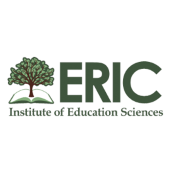
About the Journal
The International Journal of Islamic Theology & Civilization is an academic professional journal devoted to addressing current issues and future research in Islamic Theology and Islamic studies and related current issues in Islamic civilization. The aim of the journal is to strive to strengthen connections between research, discourse, and practice within the field of Islamic theology studies. Publication of this journal article will be scheduled for February, June, and November every year.
The central mission of IJITC is to strengthen the intellectual connection between theoretical research, critical discourse, and practical application in the study of Islam and its civilization. It encourages interdisciplinary and comparative approaches that integrate perspectives from theology, philosophy, history, education, law, ethics, and social sciences to address the dynamic challenges faced by Muslim societies in the modern world.
Through the publication of original research articles, conceptual papers, and critical reviews, IJITC seeks to foster a deeper understanding of Islam as a living and evolving intellectual tradition. The journal also aspires to promote dialogue between classical Islamic scholarship and contemporary global thought, thereby contributing to the renewal and advancement of Islamic civilization in the twenty-first century.
IJITC is published three time in a year and will be online world wide. The first issue will appear in February, June and November. Particular interests include but are not limited to:
- Islamic Theology
- Islam and West
- Politics/ Democracy and Islam
- Islamic civilizations
- Healthy Religious practices
- Minority rights in Islam
- Religious Tolerance
- Muslims in Malaysia
- Collective Ethics
- State responsibility
- Islamic Role in civic (society) life
- Inter-faith Ethnicity
- Comparative religion
- Islamic economy
- Waqf
- Muamalat
- Islamic History
- Hadith studies
- Quran studies
Focus and Scope
Encourage and publish research in the field of Islamic Theology & Civilizations issues. The term Islamic Theology s is broadly defined. Consistent with this policy, the IJITC publishes research in all fields of Islamic studies.
Ethical Policy
The journal upholds strict publication ethics and integrity in line with the Committee on Publication Ethics (COPE) guidelines. Authors are expected to ensure originality, proper citation, and academic honesty in all submitted works. Plagiarism, data fabrication, and unethical research practices are strictly prohibited.
Audience
IJITC serves a diverse readership including academics, theologians, educators, graduate students, and policy researchers in the domains of Islamic studies, theology, and civilizational research. The journal also welcomes contributions from interdisciplinary scholars exploring the intersection between Islam and contemporary global issues.
Mission
-
To promote rigorous and ethical scholarship that reflects the principles of Islam and contributes to human knowledge.
-
To build a bridge between traditional Islamic sciences and modern disciplines, including philosophy, education, law, ethics, and the social sciences.
-
To encourage research that addresses real-world issues affecting Muslim societies, guided by Qur’anic principles, Prophetic traditions, and civilizational ethics.
-
To nurture emerging scholars and researchers in the field of Islamic studies through mentorship, publication opportunities, and research collaboration.
-
To support the globalization of Islamic knowledge through the use of English and Arabic as academic languages, thus reaching both Muslim and non-Muslim audiences.
Open Access Policy
This journal provides immediate open access to its content on the principle that making research freely available to the public supports a greater global exchange of knowledge.
Indexing
Myjurnal, ERIC, Google Scholar, Zenodo, OpenAire index
Publication Fee
In IJITC, all of the content is freely available without charge to the researcher or author.
Publication Frequency
IJITC, Journal of Islamic Theology and Civilizations, is published (3) issues per year (FEBRUARY, JUNE & NOVEMBER)
JOURNAL TEMPLATE









